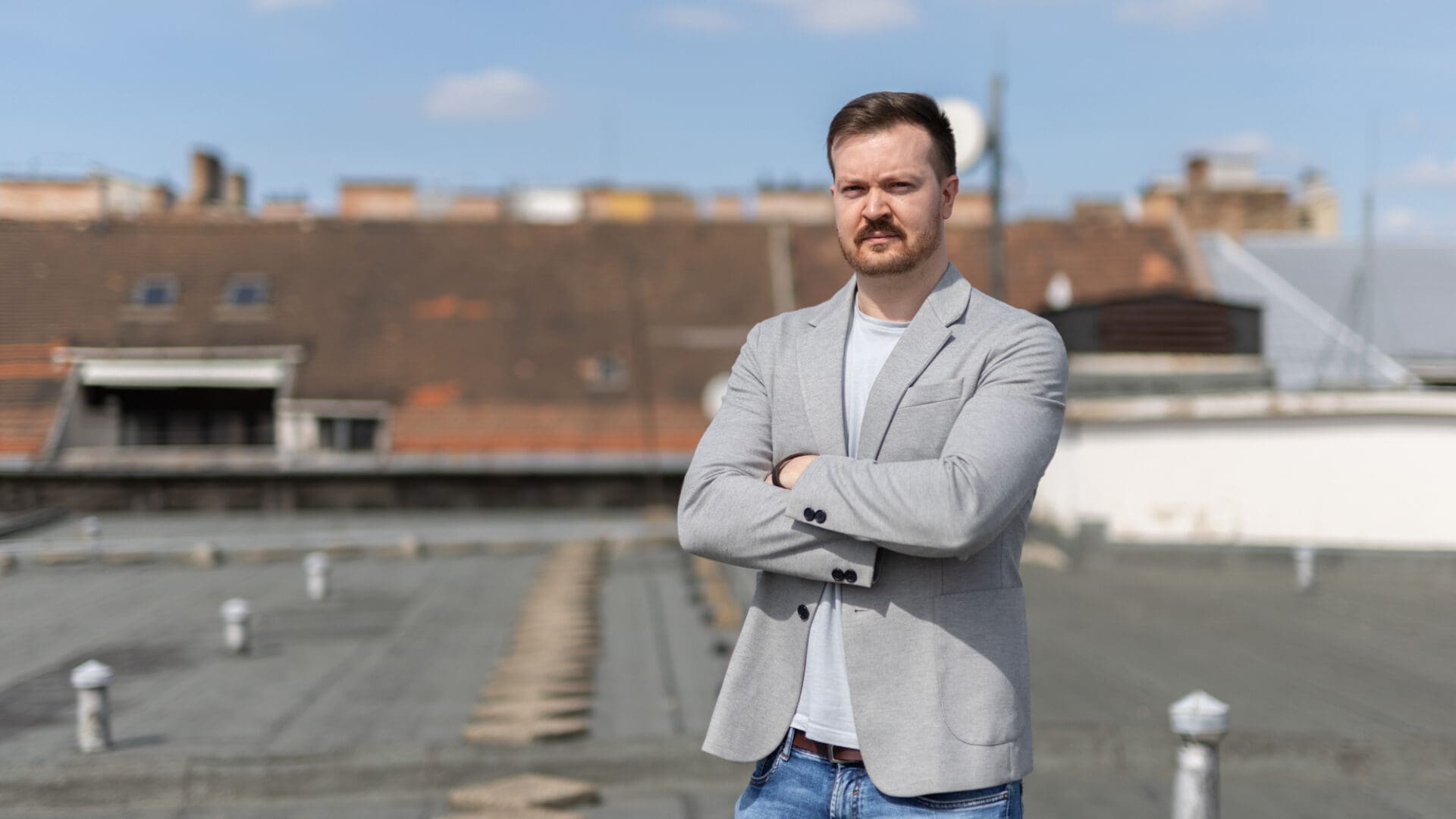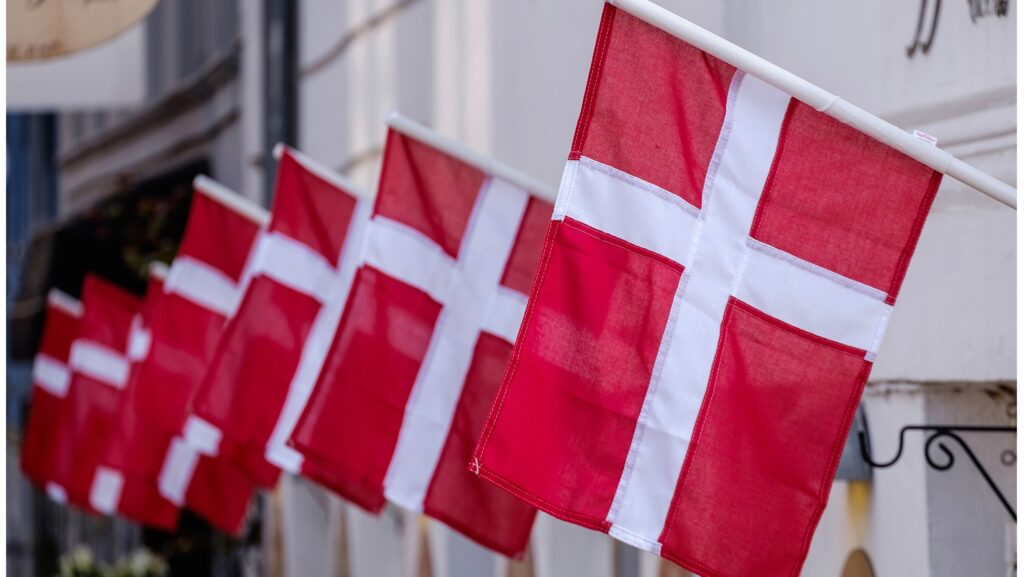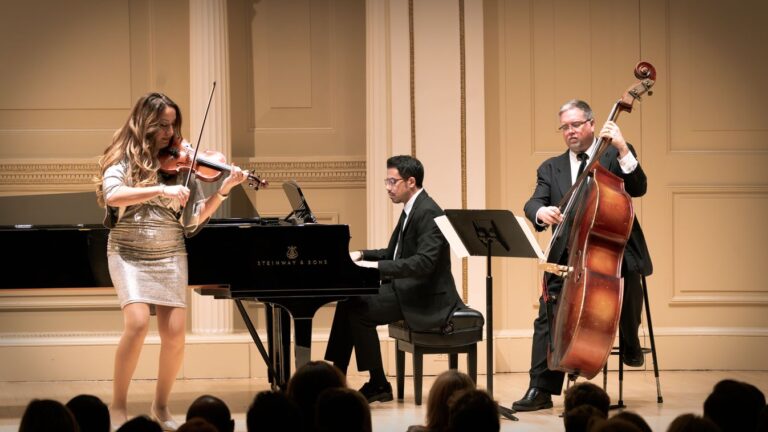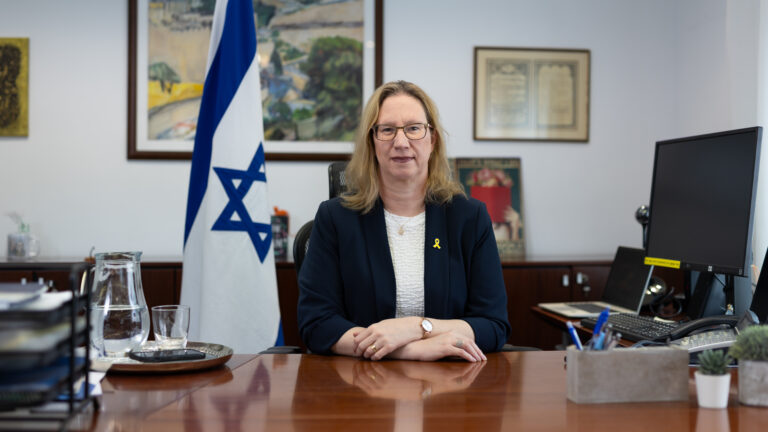Nothing draws public outrage like sexual crimes against children—understandably so. We at Hungarian Conservative talked to the two people in the country who know the most about what to do to prevent your child from becoming a victim of a sexual crime in the cyberspace, and how to find the perpetrators if they, God forbid, were successful in committing their putrid offence. The two men who were kind enough to give an insightful look into their job are Captain Bence Szabó of the National Bureau of Investigation, and Lieutenant Colonel László Oláh-Paulon of the Crime Prevention Unit of the Hungarian Police.
We first spoke to Captain Szabó.
***
Are there social media profiles on the internet that seemingly belong to minors, but in reality, they are run by Hungarian law enforcement agencies in order to collect evidence against criminals?
I cannot comment on the methods investigators use on the internet. However, in general, it should be known that it is in everyone’s interest to have these areas of life examined and investigated. There is a very strong international cooperative network between law enforcement agencies, international public bodies and NGOs as well. Thus, we have a cooperative network with a huge work capacity, which covers many platforms on the internet.
We have a presence on many sites and platforms online, and we are investigating every part of the internet where users can chat, exchange or upload and share materials with each other, or can publish articles on a certain topic, or any social media or cloud sharing service, and even video game platforms.
But if there were such profiles run by covert law enforcement agents, and that information would be public and propagated, would not that work as a deterrent? Wouldn’t a potential sexual criminal have it in their mind that he may not be speaking to an actual child or a minor, but a law enforcement officer?
Perpetrators already know that we have some kind of presence on all kinds of platforms. I have already made public comments on this issue: when we surveil these forums, we can see the perpetrators warning each other that law enforcement agencies might be monitoring their activities. Therefore, they are trying to use methods that best mask their identities. So, perpetrators are aware that they may come across a police officer on the internet, yet it does not stop them from engaging in criminal behaviour, they just become more elusive.
A few years ago, we had a scandal at a Budapest secondary school, where local students set up a fake profile of an underage girl to collect evidence against a teacher who they suspected might have had tendencies of criminal sexual behaviour. I assume the police do not condone such a civil operation, because it is not likely to lead to an arrest, and it may even be the well-intentioned civilians who are committing crimes in that case.
Yes, you can run into a lot of trouble with that, we definitely do not recommend vigilantes trying to expose the person in question. They would be better advised to make a police report, and then we go investigate if it really happened or not, or if it really happened the way they think it happened or not, has a crime been committed.
It is the way you say, these vigilantes might end up committing a crime themselves, or they can make the evidence obtained by them inadmissible in court, since they obtained it illegally, or because their conduct may constitute entrapment.
How is Hungary compared to other countries statistically? Is it a safer country than the average European country for minors on the internet?
I won’t be able to cite statistics for you with regard to comparisons to other European countries. What I can tell you is that this phenomenon is unfortunately getting worse year by year. We have more and more reports, we receive many reports from international organizations, social media service providers, etc. And the number of these cases can multiply year after year.
Currently, we get around 1,000–1,500 such reports a week, which is already a huge number.
It may be about a certain profile writing something, or another profile sending such material to another person, or maybe the report was made by a concerned parent saying that their son or daughter has been solicited for nude photos by someone. There were about 500 reports a week a few years ago, now, there are 1,500, which is a very heavy upward tendency. And this is true not just for the European Union, but globally as well.
Do you have a suspicion about what might be causing that? Is it because the internet is more easily accessible, or have people become more prone to commit such crimes?
In part, the internet has provided the perpetrators with platforms where they can engage in their criminal conduct anonymously. On the other hand, so much information and so many opportunities are out there that they can get informed much more easily on where to find such illegal content, written materials, or blogs. They can also find other people with similar interests, which emboldens their false perception that what they are feeling is not wrong.
So, there is a coordination between the sexual predators? I did not know that.
Of course.
It is important to note that these perpetrators are seeking other perpetrators’ company,
exactly because they cannot speak about this topic with anyone in their personal lives. They cannot share this sexual interest in children with others. If they ever meet another person like them, they are usually very eager to talk about their experiences, what the best methods are, and so on. People are social creatures; they like to talk about their interests. They can find a community where they can talk about this on the internet.
Also, as I have said, the perps convince each other that what they are feeling is not unnatural, not morally wrong, and not illegal. They come up with their own stories to justify their actions, and thus these communities support each other.
And these people, if I am well informed, are almost 100 per cent men. There are hardly ever any female perpetrators of such crimes, right?
No, evidently, there are female perpetrators as well. Also evidently, men tend to commit such crimes in higher proportions, but female predators do exist, although their actions may differ in their nature.
And are they typically lesser educated people?
No, there is absolutely no distinction in that regard.
Anyone from high income to low income?
Yeah, among anyone one can imagine from every single social class, in any social circumstance, there are perpetrators. You cannot profile this in terms of level of income or education. These crimes are committed by people from all walks of life.
If someone commits such a crime, what kind of punishment could they get?
The main criminal offence our unit is investigating is child pornography, which is the online form of sexual exploitation of a child. It is important to note that ‘sexual exploitation of a child’ is our preferred terminology, since neither ‘child pornography,’ nor ‘paedophile’ are accepted terms on the EU level any more. While the first is condoned because pornography itself is most often associated with adult sensational materials or products, the latter is rather a clinical term and does not necessarily identify the subjects we are investigating.
‘Child pornography’—what the criminal offence is currently called in Hungary—was reworked with the Child Protection Law Package issued in 2021. They made the sentencing mandates stricter. Simple possession, meaning acquiring or keeping such illegal material, is punishable by one to five years in prison. If someone offers, hands over, or makes this type of material available to someone else, they can expect a sentence of two to eight years; and if they make these materials, place them on the market, trade them, or make them accessible to a large audience, they can expect five to ten years in prison. There are aggravating circumstances as well: If the child who is depicted on the picture or video is under the age of 12, or if the child is under the care or responsibility of the perpetrator, or when the imagery depicts torment or the use of violence. These all can add up to even 20 years of prison in sentencing.
Have we seen such sentences actually given, with that time actually having to be served?
An example: The perpetrator not only made recordings, but he himself had sexual relations with the victim, and he was sentenced to 20–25 years in prison. This is a recent sentence.
This may be the most important question of all. What can the parents and other family members do to keep the children in their lives safe in the cyberspace? What can they do to make it less likely that their child becomes a victim of a sexual crime on the internet?
In my opinion, parents should never prohibit the child from accessing the internet, because that is counterproductive.
When a child is coerced into sending such a recording of themselves, the most effective way of blackmailing them is threatening to share that recording with their friends and family. What this tells us is that the most important thing for the child is not to be ostracized by their peers. The parents are not even the most important to them, although that depends on their age, but rather, it is their friends and schoolmates. They have the biggest influence on the child’s behaviour.
Now, if the child is banned from the internet, while all their peers are hanging out online, it will have the same result, you are still harming the child, you will only make them resentful, and they will try to go online in secret. We believe the most important thing is open communication; also, that the parent learns to use the platforms that the child uses, be it a chat application, be it social media, TikTok, etc. Learn just how to use them, and be curious about what the child is watching, and who they are talking to. Because if the child trusts their parents, and shows them ‘I am talking to this, this, and this person, but I don’t know them personally,’ then the parent can filter if this is a dangerous situation, or a benign one and there is no need to be afraid. The parents can do the same with video games, look who their child is talking to there.
We have seen many cases of a child being bribed into sending a nude recording of themselves with in-game currency, game tokens. And a parent can only prevent that from happening if they are familiar with the game. They don’t have to learn every aspect of it, just to know how it works, and to have a discussion with the child that they are not to send personal data or recordings to anyone. Evidently, not in a scolding tone, but in a friendly one. Also, they should warn the child that what is once put on the internet will stay there. They shouldn’t believe that they are sending that recording to only one person, because it will be shared with their acquaintances, whether they are blackmailing them with that or not. You should tell your child, in their own language, that they should never do that, because that is a danger to themselves and their family, and it will not end well for them.
***
After our discussion with Captain Szabó, Lieutenant Colonel László Oláh-Paulon of the Crime Prevention Unit hosted us in his office for another exclusive interview.
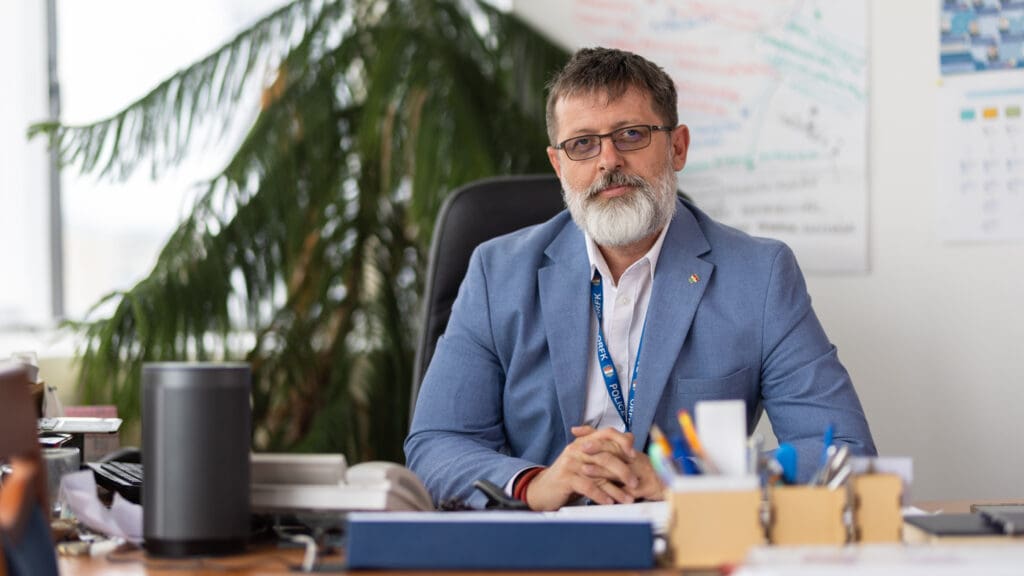
This was the last question I asked from your colleague Bence Szabó, but I thought I’d start from here with you. What is the most effective and most important thing a parent can do to make their child less likely to become the victim of a sexual crime on the internet?
Many people believe that these sorts of age-gate programmes, blocking certain sites, restricting computer use, and regular screening of the child’s computer can be effective. I, however, think that
the partner relationship between parent and child is what’s important.
What I mean is that trust needs to be established. Openness and, for certain things, consistency are very important too, as well as defining the rules and boundaries.
I have three children, aged between 14 and 16. It is very important to define the boundaries in our lives: what sites they can visit, and what network of friends they have. There is a contract in place between me and my children, which allows me, until they reach the age of 18, to have access to their social media accounts. I promise them that I won’t do it regularly, and won’t incessantly watch what they are chatting about on Instagram, Snapchat, and all these sites. However, I do want to have the opportunity to have oversight of these platforms. I will not abuse that access, but the children know that they are under some kind of control. And that I am aware of their network of friends. This is an important aspect. I have to know who they are meeting, and what kind of relationships they are having.
Just one example: my son, as a teenager, was willing to cross certain boundaries with some of his classmates. They were chatting about those sort of topics, and sending those kinds of materials to each other. And it was important for me to tell him where to stop his line of communication, so he doesn’t cross a line.
Does crime prevention have a potential perpetrator side? Are we studying what kind of people get to the point that they would be willing to commit a sexual crime against a child in the cyberspace? Do we have methods to stop a potential perpetrator from getting to that point?
It is very important to know who we are dealing with. Because the perpetrators who sexually exploit children have a certain subset who are not—for the lack of a better term—’classic paedophiles’. But rather, they are young people themselves, 15–16–17-year-olds. They are committing crimes against their girlfriends, boyfriends, casual partners, or friends, not even realizing that their conduct is illegal. They may think it’s good fun.
This is one case that actually happened. At a house party, two teenagers retreat to a room to get intimate. Their friends walk in on them and take photos. The youths may think, ‘Oh, this is funny, we caught them in an intimate moment’. This is a criminal act per se, taking a photo of someone under 18 in those circumstances. To aggravate their offence, they start sharing these photos with each other. If we apply a strict interpretation of the law, they are violating the Child Protection Act.
And minors have faced criminal prosecution for such conduct?
Yes, they have. Despite these laws being put on the books to protect the youth, it is a young person, a 17–18-year-old, who might have to carry the stigma of a conviction for a sexual offence for the rest of their lives. Even though they are not a ‘classic paedophile’, their conduct met the definition of making an illegal pornographic recording of minors.
That is why it is crucial that young people are informed about these dangers. The internet is full of such recordings made at parties at dormitories, made at other parties of the sort.
A big proportion of these recordings were made by people who are underage themselves.
They have to be taught, they have to be told of this issue, we should not let them learn from their own mistakes. There is a prevention programme for that, by the way.
As for ‘classic,’ older paedophiles, who are aiming to exploit children, as per my understanding, there are two groups of them. There are the opportunist and the preferential offenders. There are certain grown adult men who, unfortunately, have no other opportunity but to go after children, since they don’t have the social and emotional skills to have a relationship with a woman of similar age. Children aren’t their preference, but these are the circumstances they are in. The second group may be the more dangerous one, those who may even be successful with women, but this is what really titillates them.
Yes. In criminal court, when it comes to sentencing, this may be an extenuating or aggravating circumstance. However, as part of the criminal investigation, it is not our job to assess whether the perp would have had the opportunity to establish a relationship with someone else, but the poor guy couldn’t, and only could with someone younger. We do not investigate that.
What is important to investigate is if the potential victim was under 18, and if the victim is a minor or a pre-pubescent child. We do not examine if the crime was committed for motives of sexual desires, or financial gains—these, by the way, are relevant facts during the prosecution process. Our main mission is to try to nip these perps in the bud, to make the dark web and the forums where these criminals congregate in confidence our ‘hunting ground’. However, there are still some dark spots out there that even we can’t find.
I am aware that in the American prison system, convicts who are in for sexual crimes against children usually become a target among the inmates. As far as you are aware, is it the same in the Hungarian prison system? Are criminals who have committed sexual crimes against children ostracized by other inmates?
Those who commit a sexual offence against children, and those who commit an offence against members of a particular racial group, such as the Romanis, and that racial group happens to be in a majority in the prison’s population, these people will not be—and I’ll try to put it as softly as possible—welcomed with love by the other inmates. Those who commit sexual crimes against children are at the very bottom of the social ladder, even in prison.
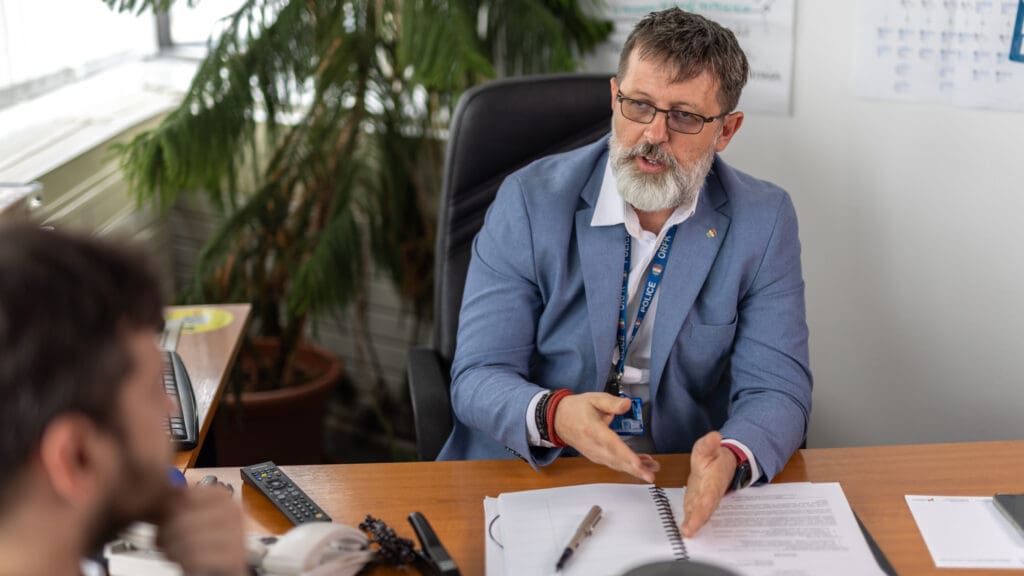
Evidently, they are not marked in any particular way by the correction officers in the Hungarian prison system, they won’t have to wear a special colour uniform or anything like that to note that they have committed a paedophilic crime. However, just like with anything else in the world, it can’t always be kept a secret. If the perp themselves cannot keep what kind of crime they have committed a secret in prison, then it becomes an additional task for the correction officers to watch out for their safety as well. It is the responsibility of the correction officers to keep the inmates safe, and if someone is in for such a crime, it becomes an extra security risk. Similarly, if someone who was a member of the armed forces or a law enforcement agency, they too would not be in the most beloved category. Even if they themselves have committed a crime, other inmates will still look at them as an ‘ex-cop’.
Are there any public resources, any public campaigns that parents can use to help their children safe online?
The police is currently focusing on children in their awareness campaigns. Our prevention programmes in public education, elementary and secondary schools, are aimed specifically at children, and they are about how not to become either a perpetrator or a victim, and how to identify dangerous strangers. We have some plans for campaigns targeting the parents, but as of now, we can only speak to the parents through the public education system, in schools where police officers go to as part of the programme. However, there are certain civil initiatives, such as the Hintalovon Foundation, that put out informative materials, and parents can go to them to educate themselves on the subject.
How common is it in Hungary to have an underage person fall victim to a sexual crime online? Can the chances of such a case happening be described by a percentage value?
We don’t really measure it like that, we don’t put out estimations like ‘six out of every ten minors are victims of a sexual crime online’.
I think the Hungarian public believes that even one victim is too many.
If it’s my child, or someone I know, then it is certainly too many. We are following the policy of zero tolerance. However, those children who are browsing the internet without the supervision of their parents, friends, or teachers are definitely in danger. In fact, everyone is in some kind of danger, anyone can be a victim of such an offence.
However, that doesn’t mean that everyone will be a victim. Thankfully, we are doing quite well compared to the European standard, it is not our children who are the targets. However, if they learn English better, then that might change. As long as our children are only chatting in Hungarian, there is a smaller pool of criminals they might come across. So, even learning a foreign language has its downsides.
Related articles:

